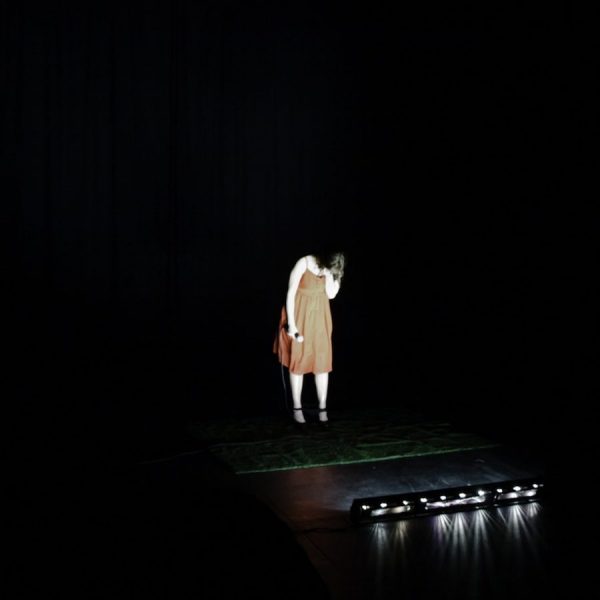The box office telephone number for Summerhall is 0845 874 3001.
The current aim of Summerhall is to transform itself into ‘a creative hub for the arts and the sciences’, something initiated with a sense of purpose after the venue’s vibrant and truly multifarious Fringe 2011 programme. In its inaugural year, it was embraced as the knight in shining armour of the festival, which has been wrestling against comedy takeover and watery theatre-making for years now.
Money making is indeed the lead balloon of any creative project, at odds with the sovereignty of art and contributing to a broad commercial populism which is often targeted as the manifest doom of cultural enterprise. Simply put, nobody wants to sell out. Traverse has been suspected of trivialising its direct, semi-activist political voice as it has faced sponsorship, investment and profit-making difficulties over the years. Pleasance and Assembly Rooms have become the roving grounds of stand-up, while ZOO and even venues such as Hill Street and New Town have struggled to harness a budget experimental theatre which is wholly fresh and progressive.
This is only one view of the Fringe; others have drawn attention to the festival’s increasing programme and venue growth while also verifying exceptional ticket sales and audience increase. These things feel superficial however, tied instead to a financial and statistical approach to the arts which is less concerned with quality production, and more with spreadsheets and data. When Summerhall entered as a prospective venue, it worked to capture a waning spirit which fused ideas from the social sciences and merged them with an artistic eagerness emblematic of the Fringe.
Summerhall’s 2012 programme reflects the foundational bravery at the heart of its journey. From nonstop 24-hour theatre to lo-fi sci-fi amusements, it advertises a mix of obscure and resourceful events which don’t appear random, rather ordered in their celebration of miscellany. Bigmouth, a show which rejoices in the history of oration by using snippets of both famous and unknown speeches, characterises its hosting venue. Much like stirring rhetoric of centuries past, Summerhall steps into a bustling market as a new kid on the block, shouting for its voice to be heard while resonating with poetic rawness which lures us through its doors. There are darker performances about suicide and absurd tributes to Russian poets, but there are also comedy acrobatics and cheesemakers tasting events.
One of the most attractive features of Summerhall this year is its film programme. Now that Edinburgh has recovered from the EIFF salvo, film offers an escape from the live experiences prescribed by the Fringe. The List is bringing a toning selection of international pictures including the Double Take series, a collection of five film couplings which reflect themes found in the rest of the Summerhall programme, and, flicking through the pages this year, this could range all the way from surreal Beckettian music to the power of potato.
What was recognised foremost at this year’s EIFF was its multinational line-up. Showing at Summerhall is a similarly lively group of polish films that have inspired many areas of western animation, but have remained relatively undetected. Poland has always drawn support from its gifted filmmakers and designers; renowned for its avant-garde graphic art and puppetry-making, polish animation has adopted native styles throughout its history to bring exciting advances and innovation to the film genre. Here, Summerhall celebrates the work of Walerian Borowczyk, Jan Lenica and other polish animators whose works have rarely been shown on the big screen.
Yet the most rewarding opportunity for film audiences this year is the seven film spread from the Karama Human Rights Film Festival. Established in 2009 and introduced in 2010, it was the first ever festival of its kind in Jordan. It revolutionised the way creative expression was delivered to a wider audience, as it has been especially difficult to institute a firm platform for people to discuss human rights issues in many of the neighbouring Arab countries. Given recent coups, revolutions and conflicts, the films may provide a glimpse into complex areas of identity and political upheaval which we don’t have direct access to in the West (or ideas which have been eclipsed by western political discourse).
There are many venues which deserve recognition at the festival, some with programmes that have been successfully realigned with each new artistic director. But with Summerhall comes genuine excitement. There’s an energy to the venue which doesn’t come along simply because it’s new; it’s down to the deep level of thoughtfulness affecting each side of its conception, which can be traced back to the reason for its creation. It’s worth seeing shows at Summerhall this year, not only because they could help define the success of your 2012 Fringe experience, but because venues like it must be supported, appreciated and championed if they are ever to break the mould. While it’s clichéd to sermonise about such things, it’s just true.


